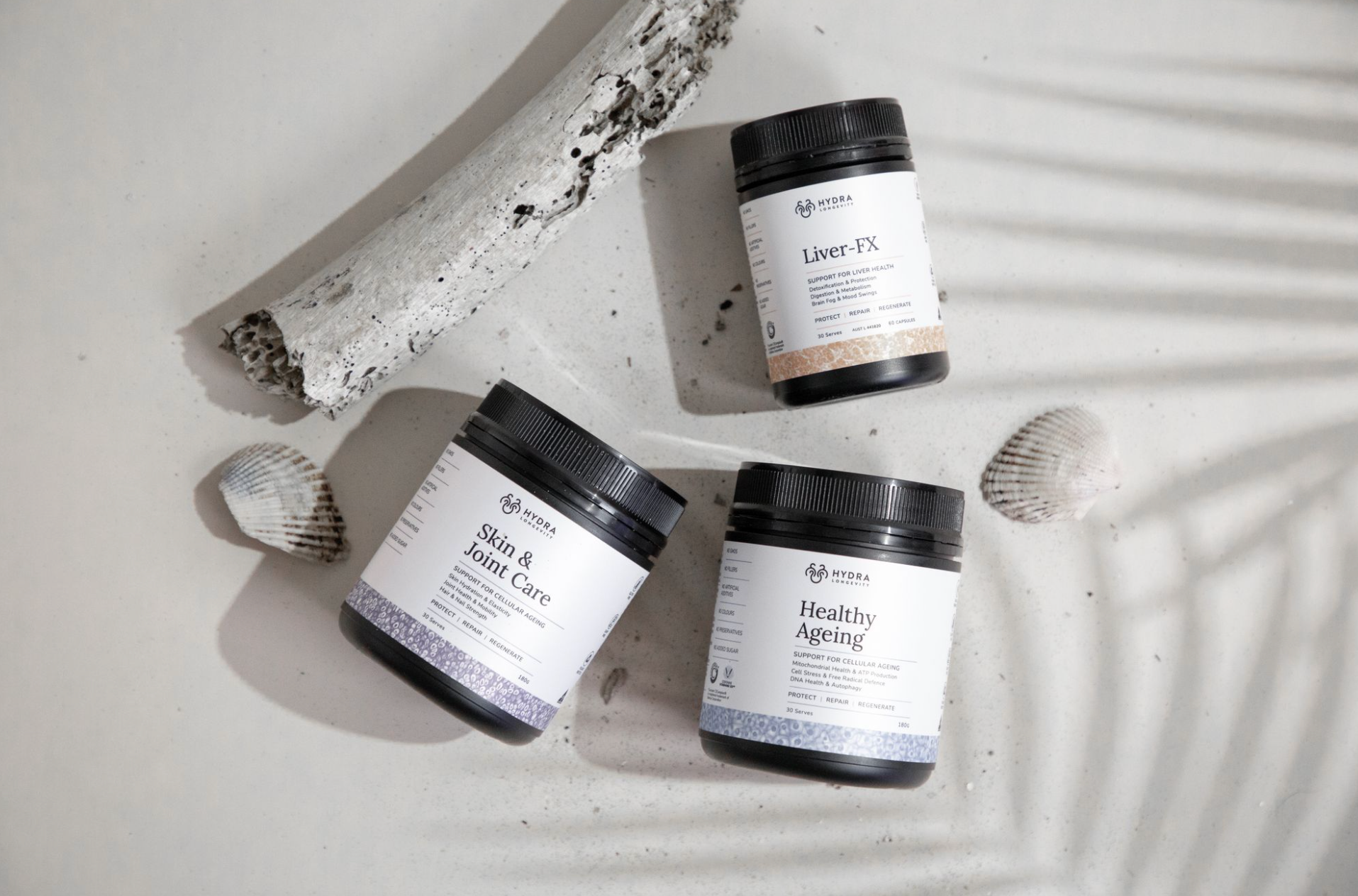Rebalancing the acid-alkaline levels in your body is the one crucial and easy step you should take every day towards being healthy and energetic. But why is our pH so important for our cells to function properly? How can we improve our acid balance to impact our health?
Acid-Base Balance
Everything around us depends on the right balance of acidity and alkalinity. Our oceans, the soil, plants, animals, and our own bodies, all require the correct pH level for life. Nearly every biological process in the human body requires the appropriate acid-base balance; human life requires a tightly controlled pH to survive. Every cell, tissue and organ in your body functions in a specific pH. If the pH changes, your body faces the challenge of correcting this; otherwise inflammation and cell damage occur. In this imbalanced state, body functions are compromised.
It is the agricultural revolution and world-wide industrialisation that has made the most critical shift in our pH balance – as the world has changed, so has the pH levels. Our ocean pH has changed from 8.2 to 8.1, which impacts ocean life and coral reefs. The soil pH has changed to such a degree now that we have to add dolomite and manure to the soil to raise the pH from an acidic state to a pH above 6. Ultimately, this affects the availability of nutrients within the food we consume and affects the environment in which we live and breathe every day.
Prehistoric Diet vs Modern Day Diet
The prehistoric hunter-gatherer diet was rich in nutrients and low in acid forming foods; even today, it is still the best suited diet to the human physiology. Plants were a major part of the diet with meat making up about 30% meat and 70% plant matter. Not only did plants make up a large part of their diet but those plants were also rich in alkalising nutrients such as potassium, magnesium, calcium and citrates. In fact, scientists reported in the British Journal of Nutrition in 2010 that hunter-gatherers had a diet that was 87% alkaline producing. The hunter-gatherer diet is so much more suited to us as our genes do not differ to those of our ancestors – our physiology and biochemistry is best adapted to the diet of those living before us, not our modern-day diet.
300,000 generations – hunters and gatherers
500 generations – introduction of agriculture
10 generations – industrial times
2 generations – ingestion of highly processed foods
Today, the human diet contains high amounts of acidic animal protein and cereal grains and low levels of alkalising plant matter, which is lower in nutrients than our predecessors’ fruits and vegetables. Another important change has been the decrease in the potassium to sodium ratio and an increase in chloride to bicarbonate. We are consuming diets low in magnesium, potassium, fibre, but high in saturated fat, simple sugars, sodium and chloride. Largely due again to our industrial and agricultural revolution, we are generating an acid load that is not balanced with adequate, nutritionally rich fruits and vegetables.
“Generally, The Western diet induces a chronic, low-grade metabolic acidosis.”
What is Acid-Base Equilibrium?
Acid-base equilibrium is the intricate balance between an acidic environment and a base, or alkalising environment. Part of the body’s role in staying balanced and in harmony is in maintaining a tight regulation of the pH balance inside and outside of every cell; this is crucial for any enzyme-controlled metabolic process. The abbreviation pH stands for ‘potential hydrogen’ and is a scale representing the relative acidity (or alkalinity) of a solution. Our scale uses 7.0 as neutral, below 7.0 is acidic and above 7.0 is alkaline.

In Clinical Practice we test urine and saliva twice a day away from eating and take an average score of both to assess the relative pH of a person. It is very unusual to have to test blood pH and it also doesn’t tell as us much about the everyday health of a person. Blood is also very tightly controlled and is more difficult to affect compared to most of our other bodily fluids. We are aiming for an average pH scoring between 6.8 and 7.2 to achieve the best long-term health benefits and reduction in chronic disease processes. Interestingly, we see the majority of people tested being quite acidic with a scoring closer to 6 and in some cases as low as 5.5 in obesity, diabetes and in the elderly.
Metabolic Verses Latent Acidosis
There are two types of acidosis that you will probably read about. Metabolic acidosis is when there is a measurable decrease in blood pH and is usually associated with conditions such as kidney disease or diabetes; although we have been starting to see diet-induce metabolic acidosis over the last 10 years. Latent acidosis, on the other hand, often involves only a slight shift in the blood pH, nearer the lower end of the normal range. It is more common than metabolic acidosis and is a chronic condition and doesn’t display any acute symptoms. The long-term cellular consequences of a chronic low-grade acidosis, or latent acidosis, has the potential to be very detrimental on health. Acidosis effects a wide cross-section of the population so most of us have probably been living with an acidic pH on a daily basis without even knowing it.
How Does Acidosis Affect Our Daily Life?
After eating, digesting and metabolising, our food releases either acidic or alkaline secretions into the circulation. The combination of an acidic diet along with emotional stress, high toxin exposure, exercise and ageing can all lead to an increased acid load in the body. This acidic load can be more than the body can cope with and your body faces the challenge of correcting this; otherwise inflammation and cell damage occur.
An important gel like substance, called the extracellular matrix (ECM), surrounds our cells and contains connective tissue, nerve endings, capillaries and immune factors. In fact, the gel of the ECM makes up to 20% of the human body weight. In acidic conditions, the ECM cannot protect the cells from damage; toxins and waste material become trapped, which leads to the damage and inflammation we are trying to avoid if we want to live a long healthy life.
Here are some of the causes of acidosis and pH changes in the body:
- Diet – high in animal protein and cereal grains and low in alkalising plants and nutrients.
- Too much salt in our foods and sprinkled on our meals.
- Inflammation – anywhere including skin, joints, bowels or lungs.
- Too much exercise each day – pushing yourself too hard.
- Dieting and fasting for weightloss.
- Gut, pancreatic and liver disorders/conditions.
- Phosphoric acid containing soft drinks e.g. Coke, Pepsi etc.
- Diabetes,
- Menopause and bad periods.
- Testosterone decline leading to muscle loss and low libido.
- Diarrhoea.
- Fractures.
- Benign tumours.
- Lung and breathing disorders.
You may not be aware of your acidic state, as often symptoms do not show up until you are well into the development of a chronic disease such as osteoporosis or diabetes. However, here are some of the conditions you might be experiencing that can be signs of acidosis.
- Feeling tired or exhausted even after sleeping well.
- Lacking concentration and focus.
- Reduced stamina and endurance.
- Always stressed and irritable.
- Nervousness and anxiety.
- Always getting sick and taking longer to get over infections.
- Painful and stiff muscles or joints.
- Loss of elasticity in the skin causing sagging and wrinkles.
- Noticing the appearance of cellulite.
Regulation of Acid-Base Balance
The body has numerous buffering and compensatory systems within the blood, bone, kidneys, extracellular matrix and within cells to bind and neutralise any additional hydrogen ions that can lead to pH imbalances.
The kidneys play an important role in maintaining this acid-base balance as well. Here’s an example of this process in the kidneys – when we eat too much animal protein, we produce excess sulphates, phosphates, sulphur and chlorides which need to be cleared via the kidneys. During this process, calcium and citrate are also lost in the urine and these are important molecules responsible for buffering acids and regulating hydrogen. The kidneys must switch on their compensatory mechanisms to deal with this lowered pH and this places extra burden on the body. This process, when happening excessively, can lead to uric acid formation (gout) and kidney stones which are extremely painful.
The Impact of Acidosis on Ageing
Over the last 10 years, there has been a dramatic increase in research on the importance of acid-base balance – dietary, drug induced and metabolic induced acidosis. The daily consumption of diets with a high acid load favours the development of low-grade acidosis which researchers have linked to the presence of many metabolic alterations. High acidic load lead to some of the following issues.
- Leaching calcium and magnesium from our bones leading to osteoporosis.
- Creating excess calcium and citrates in the kidneys leading to chronic kidney disease.
- Liver and pancreatic dysfunction leading to type 2 diabetes and fatty liver.
- Increased cortisol from the adrenals leading to muscle loss and blocked arteries.
- Chronic inflammation leading to cell damage and ageing.
Recently, scientists have been focussing on the effects excess acidity has on the kidneys and they found an amazing link to the length of our telomeres and the health of the kidneys. Remember that the telomers are the little caps on the ends of our chromosomes that prevent our chromosomes from unravelling, similar to the function of the little plastic caps on the ends of your shoelaces that prevent the shoelace from unravelling. The length of our telomeres has been found to relate to the length of life of our cells – the longer the telomers then the longer our life.
Nine recent studies, covering nearly 9000 participants, found that declining kidney function was associated with corresponding shortening of our telomeres leading to accelerated ageing and the development of many diseases. Kidneys are an essential filtering organ for our body and its activity declines as we age due to its constant role of having to compensate for our highly acidic diet leading to oxidative damage and kidney cell injury.
Other studies have shown that patients with kidney failure are less likely to progress in their disease if they follow an alkaline diet and use alkalising minerals daily. The most popular low acidity diet studied to date is the Mediterranean diet – it has been associated with longer telomeres, a more alkaline system and many markers for longevity are greatly improved.
What Can We Do NOW To Reduce Acid Build-Up?
The key nutrients that have specific alkalising effects are – calcium, potassium, magnesium, selenium, Molybdenum, chromium, B2, Vitamin C, Zinc and Copper. The benefits of these nutrients are well studied and not only do they have functional activity in our cells but they also buffer acids and help in their removal from our body. It is imperative we increase their consumption in our diets.
- Eat more vegs and fruits – our meals should be made up of about 70% plant-based foods including nuts and seeds and 30% proteins including seafoods, eggs and white cheeses. This will provide us with many alkalising minerals and nutrients.
- Exercise regularly, relax and de-stress.
- Take time to eat slowly and mindfully – enjoy your food.
- Drink at least 2 litres or water a day (including herbal teas).
It is important to start making these changes today as our pH balance is one of the easiest and tastiest ways to improve our health and longevity. Test strips can be found in your local pharmacy to test your own pH levels, with the goal of moving our urine/saliva average closer to 7.0.
Many studies have been done on the new group of plants called superfoods and – no surprise – they are crammed full of alkalising minerals, anti-inflammatory compounds, cell protecting and energy producing nutrients. Healthy Ageing Essentials and Body Revitaliser Essentials provide you with over 52 superfoods and cellular cofactors helping to bring your pH back to balance and restore health to your kidneys and many other organs in the body. Start today - follow the Mediterranean diet, look online for a list of alkaline foods and eat more of them on every plate and follow the recommendations above to do everything you can to correct your acid-base balance so you can live long and healthy life.
Research information sourced from Bio-Practica and Prof. Jurgen Vormann from the Institute for Prevention and Nutrition in Munich, Germany.





